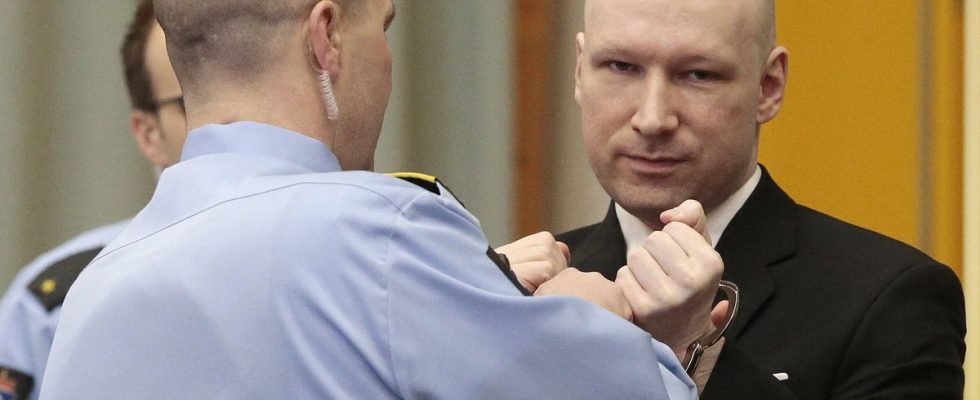For once, he wasn’t provocative. Neo-Nazi Breivik sues the Norwegian state over his solitary confinement. The trial began on Monday after he arrived with a shaved head and dark suit and tie in the Ringerike prison gymnasium.
Detained alone in a high-security unit, the 44-year-old extremist believes that his continued isolation for nearly 11 and a half years violates Article 3 of the European Convention on Human Rights, which prohibits “inhuman or degrading punishment or treatment”. Since then, “he is still in solitary confinement and, the more time passes, the more this constitutes a violation of the Convention,” his lawyer, Øystein Storrvik, told AFP in October.
In court documents, his counsel argues that “the long period of isolation and lack of meaningful interaction is now resulting in harm [psychologiques] for Breivik, including the fact that he is now suicidal.” “He is now dependent on the antidepressant Prozac to survive his days in prison,” he says.
New attempt
According to him, the assailant of the Utøya killings today only has contact with two other inmates whom he sees for an hour every two weeks under close surveillance, and with prison staff. Invoking another article of the Human Rights Convention which guarantees a right to correspondence, the right-wing extremist also calls for a reduction in the filtering of his letters with the outside world.
In 2016, he had already attacked the State on these same two grounds and had, to everyone’s surprise, partially won his case at first instance. But his appeal was then completely dismissed and the European Court of Human Rights (ECHR) ruled his complaint “inadmissible” in 2018.
Pet parakeets
In Ringerike prison located on the edge of the lake where Utøya bathes, Breivik has, on two floors, several rooms serving as a kitchen, a TV lounge with games console – and a photo of the Eiffel Tower – or even an equipped gym. , according to the Norwegian agency NTB. Still according to NTB, the prison authorities also placed three parakeets there to fulfill his wish to have a pet.
The State, for its part, justifies the isolation – relative, it insists – of Breivik by his dangerousness and the need to protect against the risks he poses for society, other prisoners and guards but also those who weigh on him. The Norwegian prison system traditionally places great emphasis on the rehabilitation of criminals.
Unresponsive to rehabilitation
Breivik benefits from “a very complete range of activities” (cooking, games, walks, basketball, etc.) and “there is no indication that Breivik suffers from physical or mental problems due to his conditions of detention”, argues state attorney Andreas Hjetland.
“Breivik has so far shown little receptiveness to rehabilitation work,” he also specifies. “It is therefore difficult to imagine what significant improvements in detention conditions are possible and justifiable in the short term.”

